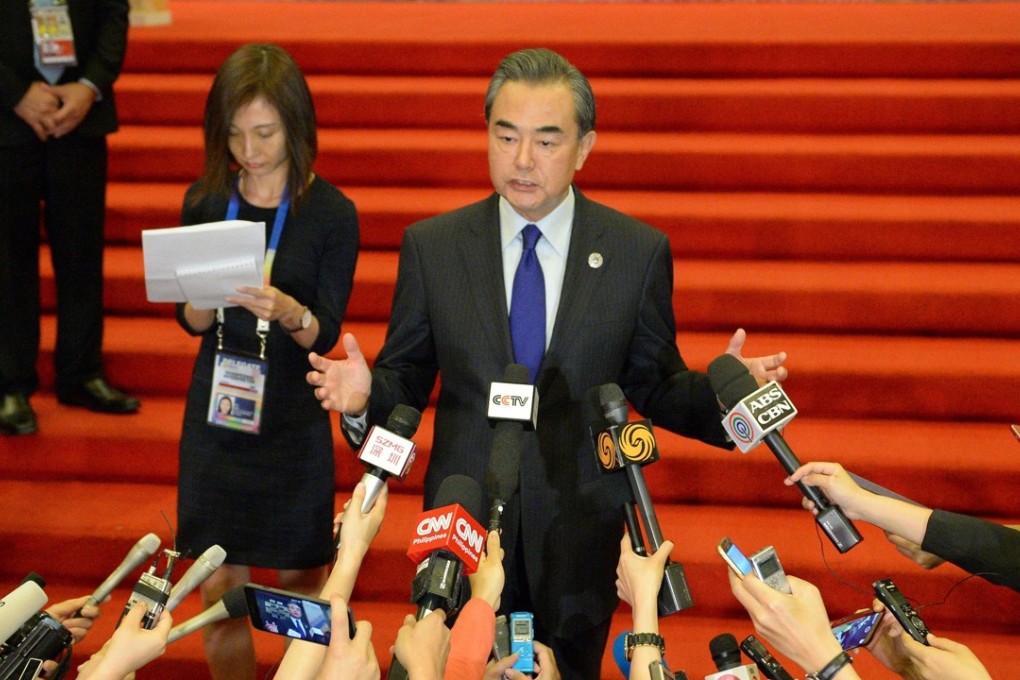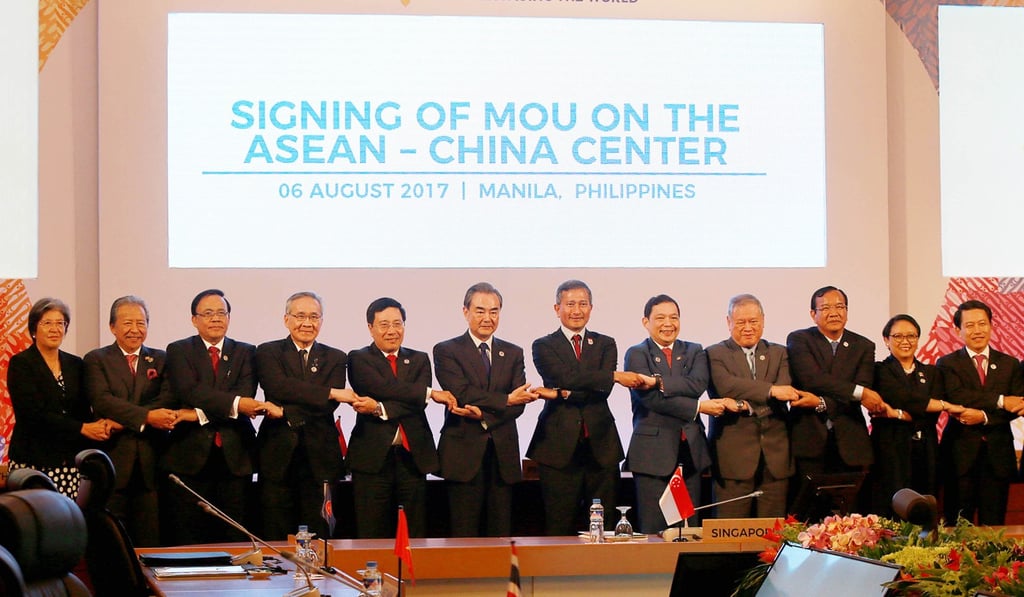Is negotiating framework deal a sign that Beijing has weakened opposition in South China Sea?
Experts suggest that some Asean member nations might have become passive in negotiations with Beijing

An agreement by top diplomats from China and Southeast Asia to adopt a negotiating framework for a code of conduct in the South China Sea might be seen as a sign Beijing has weakened opposition to its manoeuvring in the region, but analysts have questioned whether it will actually help to resolve any disputes.
The Association of Southeast Asian Nations on Sunday released a joint communique on the sidelines of a series of meetings in Manila, where the disputed waters were a hot topic. In the statement, which appeared to have been carefully worded so as not to upset China, Asean foreign ministers reaffirmed their readiness to begin substantive negotiations on the code of conduct, and tasked senior officials with starting negotiations with China.

One observer said that as Beijing has already succeeded in weakening resistance within the 10-member Asean the talks in Manila might pave the way for smoother negotiations on the code of conduct in November.
Zhang Mingliang, a Southeast Asian affairs expert at Jinan University in the southern China city of Guangzhou, said the fact that the South China Sea ruling initiated by the Philippines was not even mentioned in Sunday’s statement was a triumph for Beijing.